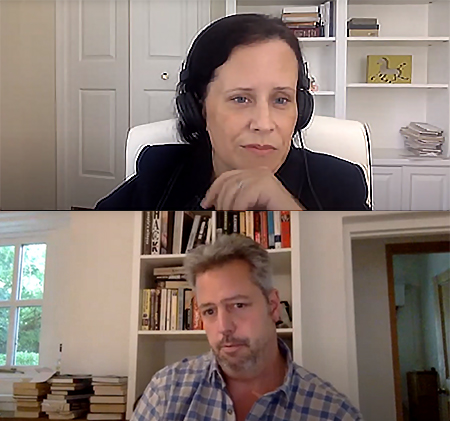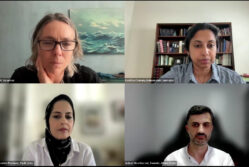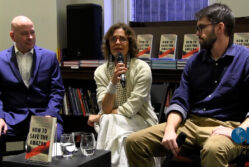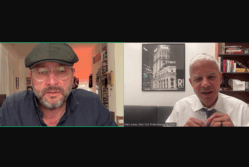Event Coverage Highlight

Ed Cunningham Award Winner Discusses Reporting on Missionary’s Murder
by Chad Bouchard
John Allen Chau, a 26-year-old American missionary, embarked for a remote island in the Indian Ocean in late 2018 after years of preparation with the singular goal of converting Indigenous people with little contact with the outside world to Christianity. Members of the tribe he tried to contact, the Sentinelese, killed him.
Sensational coverage of the killing painted Chau as a naïve and irresponsible Christian supremacist, absent context that journalist Alex Perry saw in the story, which he wrote for Outside magazine in 2019. That story, “The Last Days of John Allen Chau,” won this year’s Ed Cunningham Award for best magazine-style, long-form narrative feature in print or digital on an international story.
On Oct. 1, the OPC hosted an online discussion with Perry and Megan Stack, the head judge for this year’s Cunningham Award, moderating. Perry said the Sentinelese have met previous attempts to visit with violence, with reports going back centuries, which may have been part of the allure for a young missionary.
“They are generally considered to be the most isolated people on Earth,” he said. “And for that reason they are the ultimate goal if you are the kind of guy who sees themselves walking alone into the jungle to meet the uncontacted tribe, and that’s what John was trying to do.”
Perry said as a correspondent based in India, he had also been fascinated with the isolated islands, and had been gathering background for years before John’s death.
He said the story encapsulated “so many currents that flow through these islands, the horrible colonial history, the exoticization of tribes, the displacement of people’s agency,” he said, citing a British colonial jail that had once operated there and was the site of many atrocities. “There’s a horrible history of foreigners showing up on these islands and behaving very badly.”
Perry said he saw some of his own impulses as a journalist running parallel to Chau’s story, and while he grappled with those insights, it also allowed him to see him with empathy beyond the vilified image the rest of the world had condemned Chau with.
He said he could relate to Chau’s thirst for risk, and in his own life, partly out of immaturity, he had loved “going to wild places and meeting strange people with guns.”
“When I go to a place like Congo and Somalia, over the years it’s become more and more apparent to me how exploitative that process can be. I get what I need, and what my magazine needs for a good story. But I’m absolutely forbidden to pay the person who’s allowing my profession to exist.”
He said despite parallels, unlike Perry the missionary had not shown signs of second guessing himself or his mission of faith.
Perry had access to Chau’s personal journal and quoted it extensively in the piece.
Using that document, he followed the young man’s journey from enthusiasm to frustration and fear as he was attacked at one point by a bow and arrow, which was blocked by a bible.
Perry talked about the challenges of getting access to the remote region, which is controlled by Indian military, staying there for about two weeks sleuthing out Chau’s last movements before his death.
He found a helpful clue in a map that Chau left at a backpacker hostel, marked with photos and places to go, many of which there would be little reason to visit unless you were planning to reach the Sentinelese or its neighboring tribes. He was able to reconstruct the story through interviews and tracing receipts across the region. “It was slow detective work,” Perry said.
He said Chau’s determination for missionary work was much like that of heroes before him who had also gone to hostile areas and been killed. Perry said Chau’s fate was sealed by a combination of this single-mindedness and “he just didn’t quite have the maturity to accept the personal humiliation that would come with failing to perform his mission, and instead he had to go through with it.”
Perry was one of the recipients of the OPC’s microgrants for freelancers.
He said as with many freelancers, the pandemic hit hard when media stopped assigning work and in some cases came up short on payment, leaving him “$20,000 down” while trying to write several long-term projects. “When you’re living that kind of life, cash flow becomes really quite an issue, and if there’s one interruption to regular payment, it’s a crisis.”
He called the OPC’s assistance “an absolute lifeline that went toward sustaining a career that otherwise I was looking at having to give up.”




